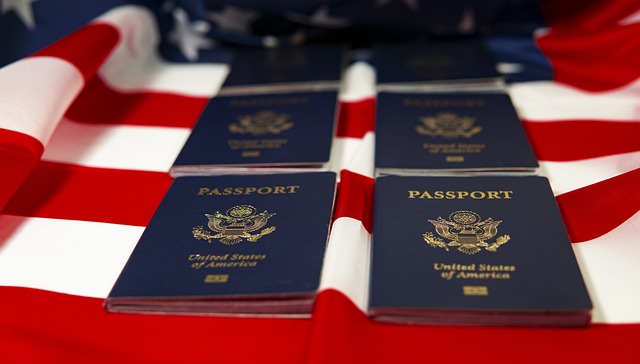French Work Visa Requirements and Application Process

If you’re planning to work in France, obtaining the appropriate visa is a crucial step. The French government has specific requirements and procedures for issuing work visas, depending on your nationality, profession, and the duration of your stay. Below is a detailed guide to help you navigate the process.
1. Who Needs a French Work Visa?
- Non-EU/EEA/Swiss Citizens: If you are not a citizen of an EU member state, the European Economic Area (EEA), or Switzerland, you will need a work visa to legally work in France.
- Short-Term vs. Long-Term Stays:
- For stays under 90 days within a 180-day period, a Schengen visa may suffice if no work permit is required.
- For stays exceeding 90 days, a long-stay visa (“visa de long séjour”) is mandatory.
2. Types of French Work Visas
France offers several types of work visas based on the nature of employment and qualifications:
a) Talent Passport (Passeport Talent)
- Designed for highly skilled professionals, researchers, artists, and investors.
- Valid for up to four years and renewable.
- Requirements:
- Proof of qualifications or expertise in your field.
- A job offer or contract from a French employer.
- Minimum salary thresholds apply (varies by profession).
b) Employee Visa (Salarié Detaché ICT or Salarié Qualifié)
- For employees transferred within multinational companies or those hired by French firms.
- Requires sponsorship from a French employer.
- Documents needed:
- Employment contract or assignment letter.
- Proof of professional qualifications.
- Evidence of sufficient income to support yourself.
c) Seasonal Worker Visa
- For temporary jobs in sectors like tourism, agriculture, or hospitality.
- Typically valid for six months and non-renewable.
- Sponsored by the employer, who must demonstrate compliance with labor laws.
d) Internship Visa
- For students undertaking internships in France as part of their studies.
- Requires an internship agreement signed by the host organization and educational institution.
e) Self-Employed Professional Visa
- For freelancers, entrepreneurs, and independent contractors.
- You must provide a business plan, proof of financial stability, and evidence of demand for your services in France.
3. General Requirements for a French Work Visa
Regardless of the type of work visa, certain documents are universally required:
Personal Documents
- A valid passport with at least two blank pages and validity extending beyond your intended stay.
- Completed visa application form (available online).
- Two recent passport-sized photos meeting French consulate specifications.
Employment Documents
- A formal job offer or employment contract from a French company.
- Proof of professional qualifications (diplomas, certifications, etc.).
- Letter from the employer confirming sponsorship and detailing job responsibilities.
Financial Proof
- Bank statements or proof of sufficient funds to cover living expenses during your stay.
- Salary details or funding sources if self-employed.
Health Insurance
- Comprehensive health insurance covering medical costs in France.
- Some visas require enrollment in the French social security system.
Additional Documents
- Criminal record clearance certificate (if requested).
- Proof of accommodation in France (rental agreement or hotel reservation).
- Travel itinerary and flight reservations.
4. The Application Process
The process involves multiple steps and can take several weeks. Here’s how to proceed:
Step 1: Secure a Job Offer
- Before applying for a work visa, you must have a confirmed job offer from a French employer. Your employer may also need to obtain approval from the French Ministry of Labor (“Autorisation de Travail”).
Step 2: Gather Required Documents
- Collect all necessary documents listed above. Ensure they are translated into French if required and certified by an authorized translator.
Step 3: Submit Your Application
- Schedule an appointment at the French consulate or embassy in your home country.
- Attend the appointment and submit your application along with the processing fee (fees vary depending on visa type and nationality).
Step 4: Attend an Interview
- Some applicants may be asked to attend an interview to discuss their qualifications, job role, and intentions in France.
Step 5: Wait for Processing
- Processing times typically range from 2 to 6 weeks but can vary based on the complexity of the case and the time of year.
Step 6: Receive Approval
- Once approved, you’ll receive a visa sticker in your passport allowing entry into France.
- Upon arrival, you must validate your visa through the French Office of Immigration and Integration (OFII) within three months.
5. Post-Arrival Steps
After entering France, there are additional administrative tasks to complete:
OFII Validation
- Register with OFII and undergo a medical examination (if applicable).
- Pay the residence permit fee if required.
Residence Permit (Titre de Séjour)
- For stays longer than one year, you’ll need to apply for a residence permit after validating your visa.
- This card serves as proof of legal residency and work authorization.
6. Tips for a Successful Application
- Start Early: Begin the process well in advance, as delays can occur.
- Double-Check Documents: Missing or incorrect paperwork can lead to rejection.
- Work with Your Employer: Ensure your employer provides accurate and timely documentation.
- Learn Basic French: While not mandatory, speaking some French improves communication and integration.
7. Common Challenges and Solutions
Challenge: Complex Bureaucracy
- Solution: Stay organized and seek guidance from your employer or a legal expert specializing in immigration.
Challenge: High Competition for Jobs
- Solution: Highlight unique skills and experience that align with French labor market needs.
Challenge: Language Barrier
- Solution: Enroll in French language courses before or after arrival to enhance employability and cultural adaptation.


